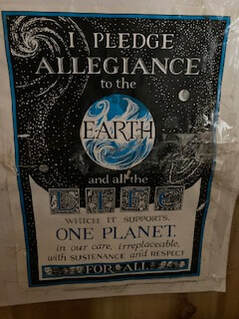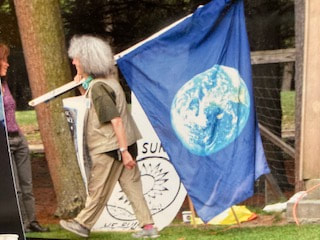
I pledge allegiance
to the earth
and all the life
which it supports
one planet
in our care, irreplaceable
with sustenance and respect
for all
The Voice of Bernice Mennis- Intersections
For me, poetry, art, literature...as well as science, facts, investigative reporting inform my thoughts and my actions in this world. In this blog I will allow myself to intersect with all the voices that speak within me and, hopefully, those voices might touch others into action to protect and preserve our earth. Bernice Mennis
to the earth
and all the life
which it supports
one planet
in our care, irreplaceable
with sustenance and respect
for all
The Voice of Bernice Mennis- Intersections
For me, poetry, art, literature...as well as science, facts, investigative reporting inform my thoughts and my actions in this world. In this blog I will allow myself to intersect with all the voices that speak within me and, hopefully, those voices might touch others into action to protect and preserve our earth. Bernice Mennis

 RSS Feed
RSS Feed